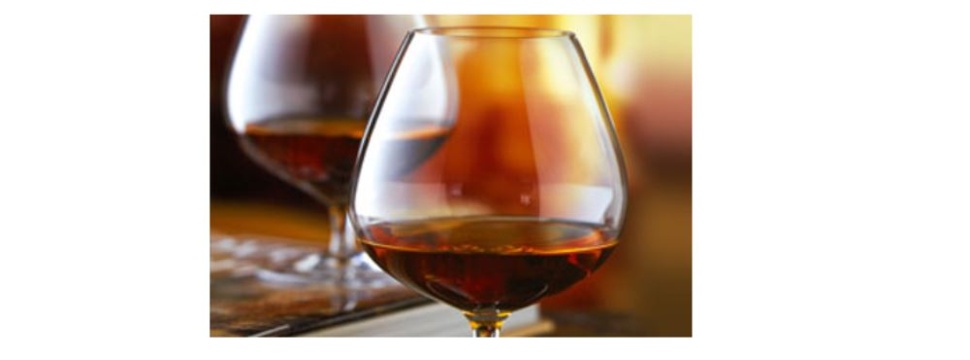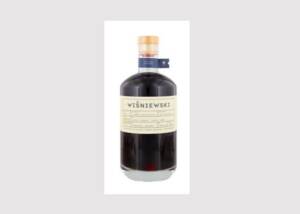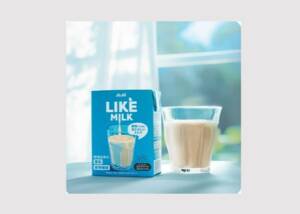BSI: Corona also poses new challenges for spirits
News General news
- Spirits market 2020: continuing trend towards premium and quality with slightly declining per capita consumption
- Distribution: Changed demand behavior due to Corona crisis
- Foreign trade: punitive tariffs burden spirits importers and exporters
- Health policy and consumers: sustainable prevention and education as a contribution to "moderate consumption"

The Corona crisis did not leave the German spirits market unscathed. At 5.2 liters, per capita consumption of spirits in 2020 was 1.9 percent down on the previous year. Around 692 million bottles of 0.7 liters each (according to provisional figures from the German Federal Statistical Office) were on offer on the German market. While spirits sales in the food retail sector increased by 6.6 percent in volume terms, according to market research company Information Resources GmbH, it was not possible to fully compensate for the drop in sales in out-of-home consumption, particularly in the food service, duty-free, events and tourism sectors (average distribution for the year: around 20 percent). The decline in sales volumes contrasts with stable overall sales. This suggests a growing premium market with increasing enjoyment of premium spirits.
"We are pleased with the continuing trend toward high-quality enjoyment. However, the development of the spirits market will initially continue to be closely linked to the further course of the Corona crisis and its medium- and long-term impact on gastronomy, duty-free and tourism. Overall, we are cautiously optimistic about the future and hope, particularly in the interests of all market participants, for a rapidly increasing normalization of the challenging market environment," says BSI President Thomas Ernst.
According to analyses by the market research company Information Resources GmbH, sales of spirits in food retailing (including Aldi/Lidl/Norma) rose by 35.7 million bottles or 6.6 percent to around 574 million 0.7-liter bottles in 2020 compared with the previous year. Around 75 percent of total sales of spirits were sold through food retailers in 2020.
In 2020, however, the spirits segments continued to develop differently. In terms of volume, the largest market shares continued to be held by "clear spirits" (around 37.6 percent), "liqueurs" (around 36.3 percent) and "whisk(e)ys" (around 9.1 percent). In 2020, the winners - according to analysis of the aforementioned market research - included: Vodka, liqueurs (including "residual" liqueurs, fruit liqueurs, cream liqueurs, egg liqueurs, semi-bitter liqueurs), gin/genever, rum, ouzo, fruit brandy, whisk(e)ys, amaretto, etc. The sales volume on the spirits market in 2020 was around 4.8 billion euros in the food retail sector. This is a good quarter of the sales of all alcoholic beverages (beer, wine, sparkling wine and spirits) in food retailing.
Imports of spirits in 2020 comprised around 414 million 0.7-liter bottles (-9.4 percent) - according to preliminary results from the German Federal Statistical Office. This corresponds to a year-on-year decrease of 43 million bottles. Over the last ten years, imports fell by around 15 million bottles or 3.5 percent. In terms of the total spirits market, imported spirits - according to market research company GfK SE - currently account for around 42 percent of the spirits on offer in Germany (excluding double counts, which include the figures from the Federal Statistical Office). The most important import countries in 2020 were: the UK, Italy, the USA, France, Greece, the Netherlands, Spain, Ireland, Russia, Jamaica, Eswatini and Poland.
According to preliminary results from the German Federal Statistical Office, spirits exports in 2020 amounted to around 239 million 0.7-liter bottles. This represents a year-on-year decrease of 40 million bottles, or 14.3 percent, and a decrease of 1 million bottles, or 0.4 percent, over the past ten years. In 2020, the most important export countries included: the Netherlands, Great Britain, France, the USA, Belgium, Austria, Denmark, the Republic of Côte d'Ivoire, Spain, the People's Republic of China, Switzerland and Luxembourg.
The total market supply (production + import - export) decreased - according to preliminary data from the Federal Statistical Office and estimates from the BSI - by 14 million bottles of 0.7 liters each in 2020 (in the corresponding year-on-year comparison), or by 2.0 percent (excluding mixed drinks containing spirits).
The entire spirits industry, including importers, had a stable sales trend in 2020, with estimated sales of around EUR 4.7 billion - this includes around EUR 2.1 billion in alcohol taxes for spirits.
Per capita consumption of spirits in 2020 was around 5.2 liters of finished product (source: preliminary figure from the ifo Institute - Leibniz Institute for Economic Research at the University of Munich e. V.), a decrease of 0.1 liters or 1.9 percent.
In an international comparison of per capita consumption of spirits, Germany ranked 51st in 2019 (figures for the 2020 calendar year were not yet available at the time of going to press) - behind South Korea, Latvia, Belarus, Bulgaria, Estonia, etc., among others - according to analyses by the market research company "the IWSR and the IWSR Magazine (the Source for Wine & Spirits Analysis)", London/UK.
Consumption per capita of all alcoholic beverages (beer, wine, sparkling wine and spirits) amounted to 123.7 liters per capita in 2020, down by 4.9 liters or 3.8 percent year-on-year.
In terms of the total 2020 revenue from specific excise taxes on alcoholic beverages (beer, wine, sparkling wine, spirits and mixed beverages containing spirits, as well as intermediate products) of €3,085.1 million (2019: €3,139.5 million), the alcohol tax on spirits accounted for a share of 67.7 percent - whereas the per capita consumption of spirits - based on all alcoholic beverages in 2020 - was only around 4.2 percent. Alcohol tax on spirits amounted to 2.1 billion euros in 2020, a decrease on the previous year.
It is reported higher by the official bodies because taxes that would not have been due until 2021 were already paid in 2020 due to period shifts.
The employee and operating structure in the spirits industry has been characterized by concentration for decades. In 2020, there was an increase to 2,902 employees (+44 employees/+1.5 percent) in the spirits industry in establishments with 20 or more employees, who were employed in 51 establishments (+3 establishments/+6.3 percent) (source: data from the Federal Statistical Office).










